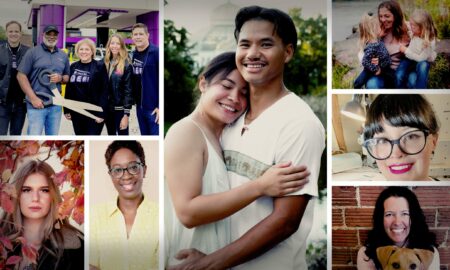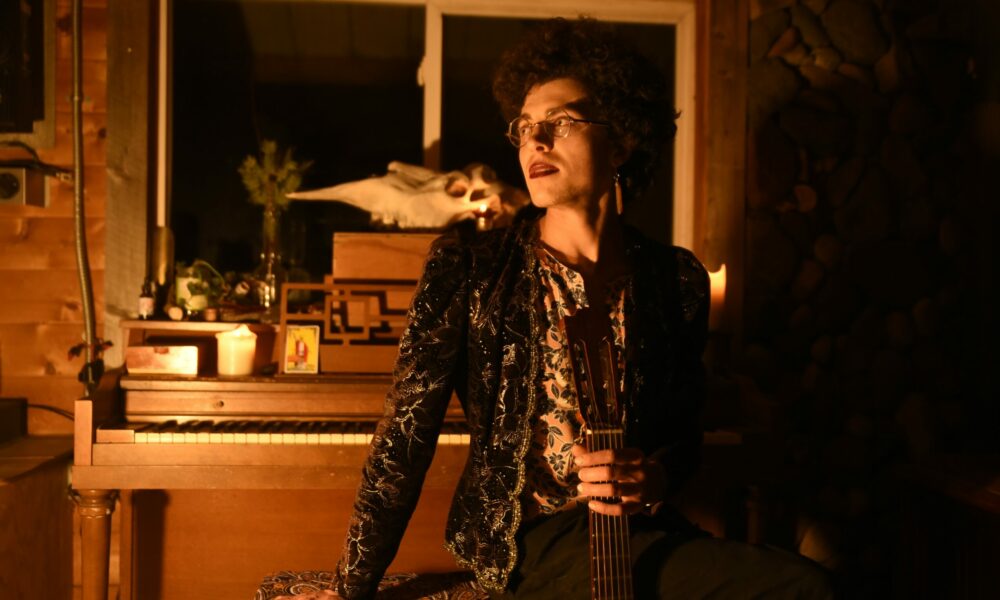

Today we’d like to introduce you to Carlisle Evans Peck.
Alright, so thank you so much for sharing your story and insight with our readers. To kick things off, can you tell us a bit about how you got started?
Once upon a time…
I grew up in a tiny town in rural western Illinois. Cornfields, dairy and pig farms, drive your tractor to school kind of rural. Both my parents were musical – they’d never call themselves musicians, but they would have music parties at our house all the time. My mom was an occupational therapist, and all her doctor and therapist friends would come over, gear in tow. My dad ran a golf course, and all his golfer friends would come with their instruments. So many guitars, dobro, bass probably. I don’t even remember. But I know my mom singing Stevie Nicks (“Landslide”) and my dad playing the Allman Brothers (“Melissa”) left a deep impression. When I got older and had learned some piano, I remember getting to jump in during the last couple of parties.
Music was a constant in the environment of my childhood. My parents say I sang non-stop as a small kid – church hymns, Nicollette Larson (my favorite cassette), Fleetwood Mac. My sister and I would wear white towels as blonde wigs to dress up as Stevie Nicks and sing into our Fisher Price boombox. I started taking piano when I was eight or nine, after my cousin had taught me to play the first few bars of “Moonlight Sonata”. As soon as I sat down at the piano I was hooked. My first piano teacher had a massive, ancient oak tree in her front yard with limbs that hung down to the ground. Soon after I started taking lessons, I began making up my own songs, and that just blew it all open. I could make a soundtrack to my life! Or rather, I could actually make the soundtrack to my life that played royalty-free in my head at all times known to the rest of the world. And I could hear it again, outside my head. I did think of music in terms of stories, images, myths. I was very into fantasy novels and films – Redwall, Lord of the Rings, Narnia. I wanted to make music that evoked worlds like that.
I wrote piano songs, and some choral pieces, for years, but for a long time never wrote lyrics or sang. My sister, though, prolifically wrote lyrics and was a fabulous singer (still is – she’s a music therapist now). We would write songs together – her the words, me the music, and became a little brother-sister duo. I didn’t write songs with words at all until my last year of high school, which curiously and I think very tellingly coincided with my coming out. As soon as I started that journey the words started pouring out of me and suddenly I wanted to sing again! I feel my music, and my voice, is inseparable from my queer identity, no more potently displayed than my childhood singing and dressing in drag as Stevie Nicks. It’s powerful to remember that I only rediscovered my voice as I began to accept and understand my queerness.
I kept writing through college and sang in choirs, and played in bands at coffee shops and in basements. But this was always on the back burner – at the time I was studying ecology, partially because I had been convinced that you can’t make a living as a musician, but largely because I love the world of growing things. Ever since I was a kid. Like I said, my dad owned a golf course, and while I think golf courses are horrendous for so many reasons and just should not exists as a use of land, as far as golf goes my dad did a decent job with his course. He planted a lot of prairie areas, would burn them periodically in the spring. He gave me a love of prairie, and wildflowers, and gardens. And I still carry this with me, a connection to and understanding of the ecosystems I find myself in is deeply important to me. About a year out of college, I was living on a farm in NE Iowa and I’d decided to stay there through the winter – and it was a really hard time. I had all these songs I’d written and was thinking of as an album. So in the depths of winter, I decided to record them – I bought a little handheld soon H4 microphone and recorded the whole album on it. It’s called “Ekphrasis”, a Greek word for works of art inspired by other works of art. What became really exciting to me was using that handheld microphone to record the sounds of the woods around the farm. I used a bunch of field recordings like that in the album. It felt like a way of bringing the environment into my music, a way of marrying ecology and song.
A few weeks later, as I was working at a seed company packing seed orders in a warehouse, I heard the first episode of the podcast “Meet the Composer” which was an interview with John Luther Adams. He’s a sublime composer of landscape and ecosystem-based music based in Alaska. And he blew my mind. I remember listening to his piece “The Wind in High Places”, a string quartet based on his time at various summits in Alaska while laying in the bath, and I felt so viscerally inspired. A few months later I moved in with a friend in Minneapolis thinking I’d only stay a year, and decided to “be an artist”. Well, that will be a lifetime of figuring out how to do it, but that was the start anyway. And nearly seven years later I’m still here, and in love with the community of creatives I’ve found.
I started forming a band to play some of my music, which just grew and grew until it was a nine-piece “rock orchestra”. We called ourselves “The Lady’s Slippers” – a striking wild orchid. It’s such a vastly transportive experience to play with a large ensemble that can just create a wall of sound. By the time of the pandemic, we’d recorded an album (“Electric Porcelain”) and were just getting momentum playing shows around the region, and then, of course, it all shut down. I went to live on a farm in northern Minnesota, along the north shore of Lake Superior, and I wrote just tons of new music there. I collected hundreds of field recordings from that landscape. It felt like revisiting, in a major way, weaving the threads of music and ecology together. I made a podcast with some of this music and field recordings called “Songs from the Wood”, and an immersive site-specific performance called “Requiem Sylvarum”.
I returned to Minneapolis in 2021 and began working on a project called “Iconoclasm”, which retells queer ancestral histories. I debuted the project in Minneapolis in 2022 in what was perhaps the most fun performance I’ve ever been a part of. I took a big leap away from the piano in this show – all of the songs were played by the band and which freed me up to just perform. My intent was to embody my forgotten queer ancestors and bring their stories back to life – it felt like a part drag show, part cabaret, part musical. It was way fun and got an incredible response, I’m making plans for continuing that project in the future. And I still have notebooks full of songs from the pandemic that I want to turn into an album. This particular moment feels rich with future possibilities, but I’m comfortable with not rushing. I think these new projects will take their time to grow, and I want to allow them that. So, I guess, stay tuned.
Can you talk to us a bit about the challenges and lessons you’ve learned along the way. Looking back would you say it’s been easy or smooth in retrospect?
One obstacle I’ve found is that I’m never totally sure where my music fits. Temporally, for one – I used to write very long, operatic sagas that were like seven, eight, ten minutes long. Most open mics won’t let you do that, haha. Or they’re too long for radio play, or Spotify playlists, etc. But more significantly I mean that I’ve often found my music doesn’t fit in easy genre boxes. I feel out of place in many “singer-songwriter” circles. My songs can be very theatrical and narratively and compositionally dense, which doesn’t work in a crowded and noisy bar very well. Nor do I feel entirely at home in music theater circles. What’s felt most successful to me is taking the approach of intending to make any space my own when I perform in it. That’s really helped me grow into a stronger performance style. If I start playing in a loud bar where no one gives a lick to whoever’s making noise on stage, I make it a goal to jar them into it. Bonus points if I can make them cry too 🙂 Not only is this empowering, but it sort of “self-selects” an audience that will really appreciate and connect with what I’m offering.
Another thing I find challenging is the primacy of social media in the world of music makers. I feel social media is problematic in so many ways, but for me, it’s egregiously so in its effect on art. I am in awe of people who use those platforms as their creative medium or performance venue, but it’s really not for me. And I get it’s a powerful tool for many folks to share their creations. But for me it feels like screaming into a void, it makes me feel hollow and judgmental of my music in an unproductive way, it honestly makes me hate music at times. Which is so heartbreaking – this sacred and fundamentally human expression that I truly feel in my bones gets reduced to a shiny, glittery, and completely two-dimensional shell. I hate it, personally, and am actively trying to figure out ways to continue building an online audience without the chaos of Instagram and Facebook. I think what Patreon offers is pretty cool – a platform for an audience to directly engage with an artist.
Thanks – so what else should our readers know about your work and what you’re currently focused on?
What a fantastically open-ended question.
I find all my music to be in some way about landscapes and stories.
I guess I’ll start here – one corner of my family – my mother’s father’s ancestry – came from Wales, and that lineage is full of bards. There are letters of correspondence between my grandfather and a distant relative in Wales who, at that time forty years ago, still owned a long-time family inn called the Black Horse. My upbringing was rich with storytelling and music, and that archetype of bards carrying lore, myth, legend, and the song really anchors all of my music. In every area of my musical output, I think in terms of mythmaking, and through that, I feel a strong connection with my own ancestors.
I feel very drawn to visual and performative media – theater, film, dance. I’ve found really rich collaborations with a loose group of artists called “Wild Conspiracy”, who produce imaginative, ecology-based theater. Most recently I’ve worked on two pieces with them – “Queen B” a visionary-futurism musical based on honeybees, and “Saber, MN” a magical-realism audio play about a town debating the installation of a frac sand mine.
My personal songwriting work, too, is grounded in myth. I think of albums as sagas, full of narrative and symbolism. Each of my albums was constructed with this in mind. There’s “Ekphrasis”, a coming out story; “WATER || SHED”, songs of the Mississippi River; “Electric Porcelain”, a melodramatic queer love saga; and “The Last Noble Thing”, songs to carry through the apocalypse. In the past couple of years I’ve become much more interested in simplicity and directness – how can a story be told in the most succinct and straightforward way possible? I’ve been writing short songs, three minutes and under, for the first time in my life. That feels far more interesting to me at the moment than the sweeping sagas of my past work. But it’s still storytelling! Lately, I’ve been loving country music, and feeling very inspired by that medium of storytelling. I’m talking about the likes of Dolly Parton, Townes van Zandt, Nanci Griffith, and John Prine. This is really an American bardic tradition.
I think of my music as a landscape, and landscape as full of stories. A song can be a powerful way of expressing a relationship with a landscape. “Requiem Sylvarum”, as an evolving path in my work, comes primarily from this nurturing of a sacred connection with a place. Sure, a performance or composition may be one form of output resulting from that connection, but the primacy is the meeting of humans and more-than-human. This is how all humans necessarily had to live, before the advent of empires and colonies and industry and modernity. And we all can appreciate how those forces, as they proceed from separation from the land and a feeling of superiority over all other life, have resulted in the wholesale destruction of global ecologies. I believe if we stand any chance at not killing ourselves off, and taking much of life on earth with us, all humanity must know and love as kin the flora, fauna, and ecologies that surround us. So, anyway, that’s the idea behind “Requiem Sylvarum”. We’ll see what I continue to create from that thread, but it’s not really about that I guess.
Are there any books, apps, podcasts or blogs that help you do your best?
Books – “The Dispossessed” and “The Word For World Is Forest”, Ursula K. LeGuin; “Landmarks”, Robert MacFarlane; “His Dark Materials”, Phillip Pullman; “The Double Axe”, Robinson Jeffers; “Autobiography of Red”, Anne Carson; “Pilgrim at Tinker Creek”, Annie Dillard
Podcasts – Meet The Composer, Dreamboy, Emergence Magazine
Shows – Over The Garden Wall
Contact Info:
- Website: https://www.carlisleevanspeck.com
- Instagram: https://www.instagram.com/carlisleevanspeckmusic
- Facebook: https://www.facebook.com/carlislemusic
- Youtube: https://www.youtube.com/watch?v=kRGUATNJlSk
- Other: https://carlisleevanspeck.bandcamp.com
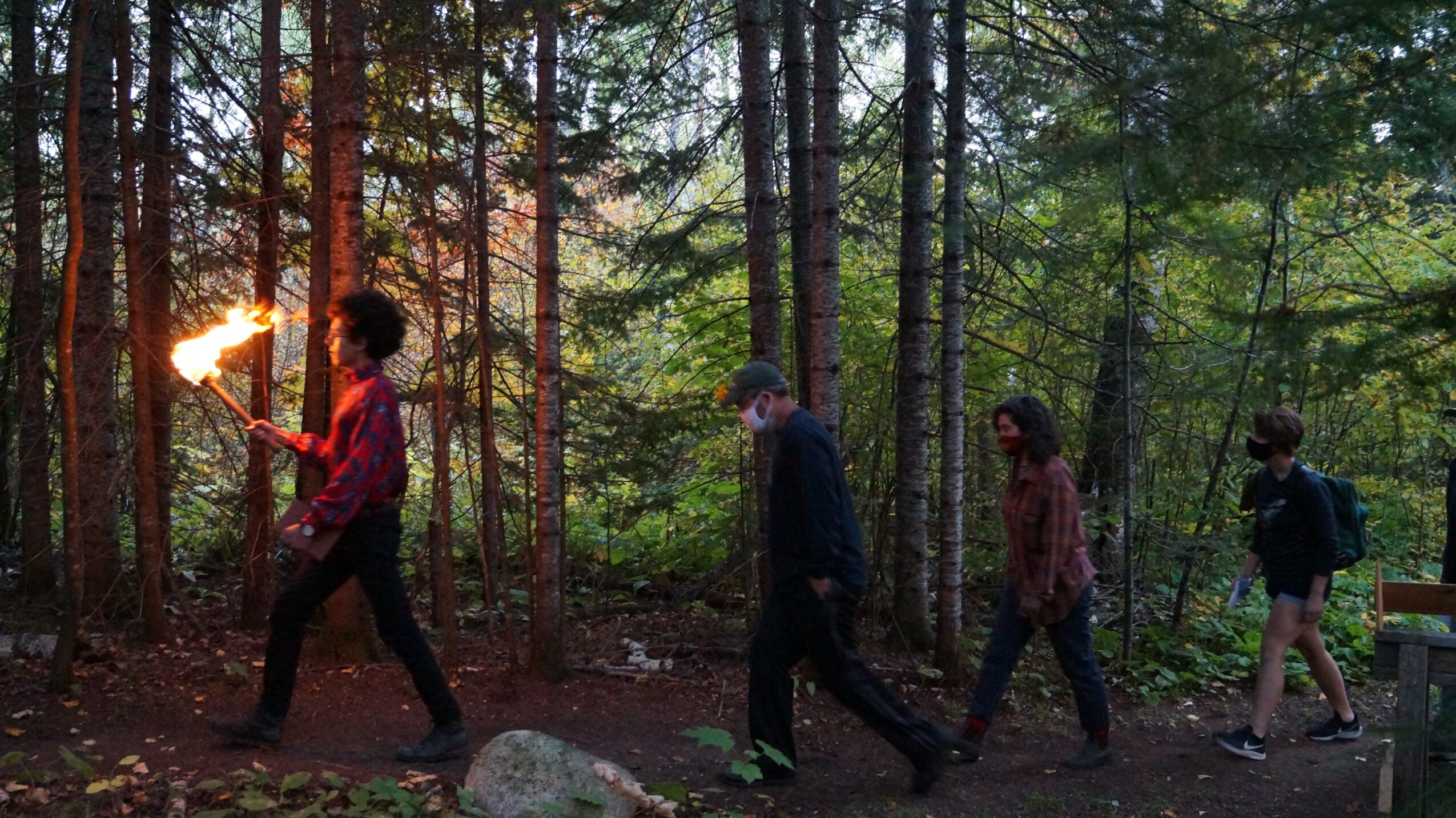
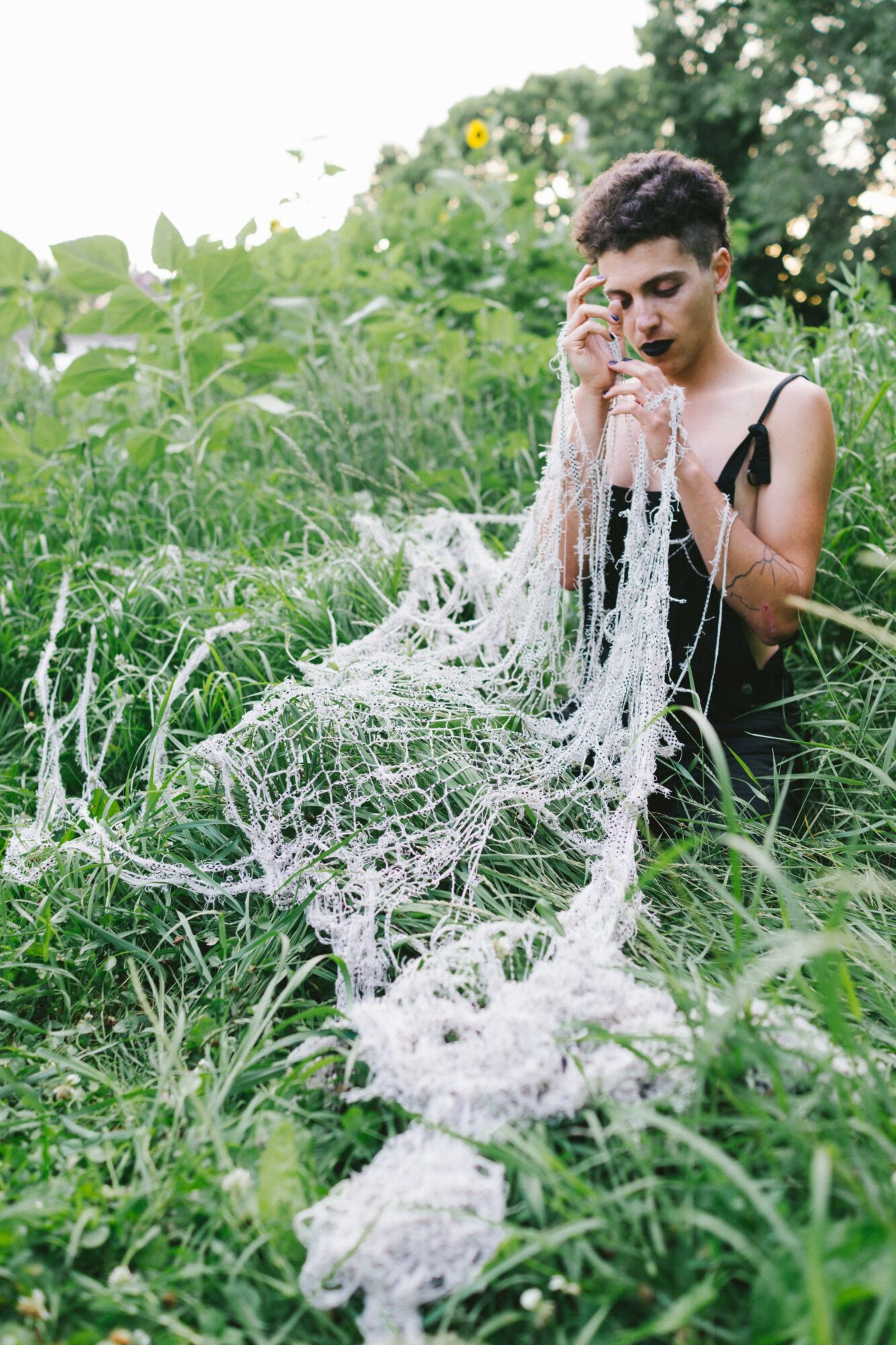
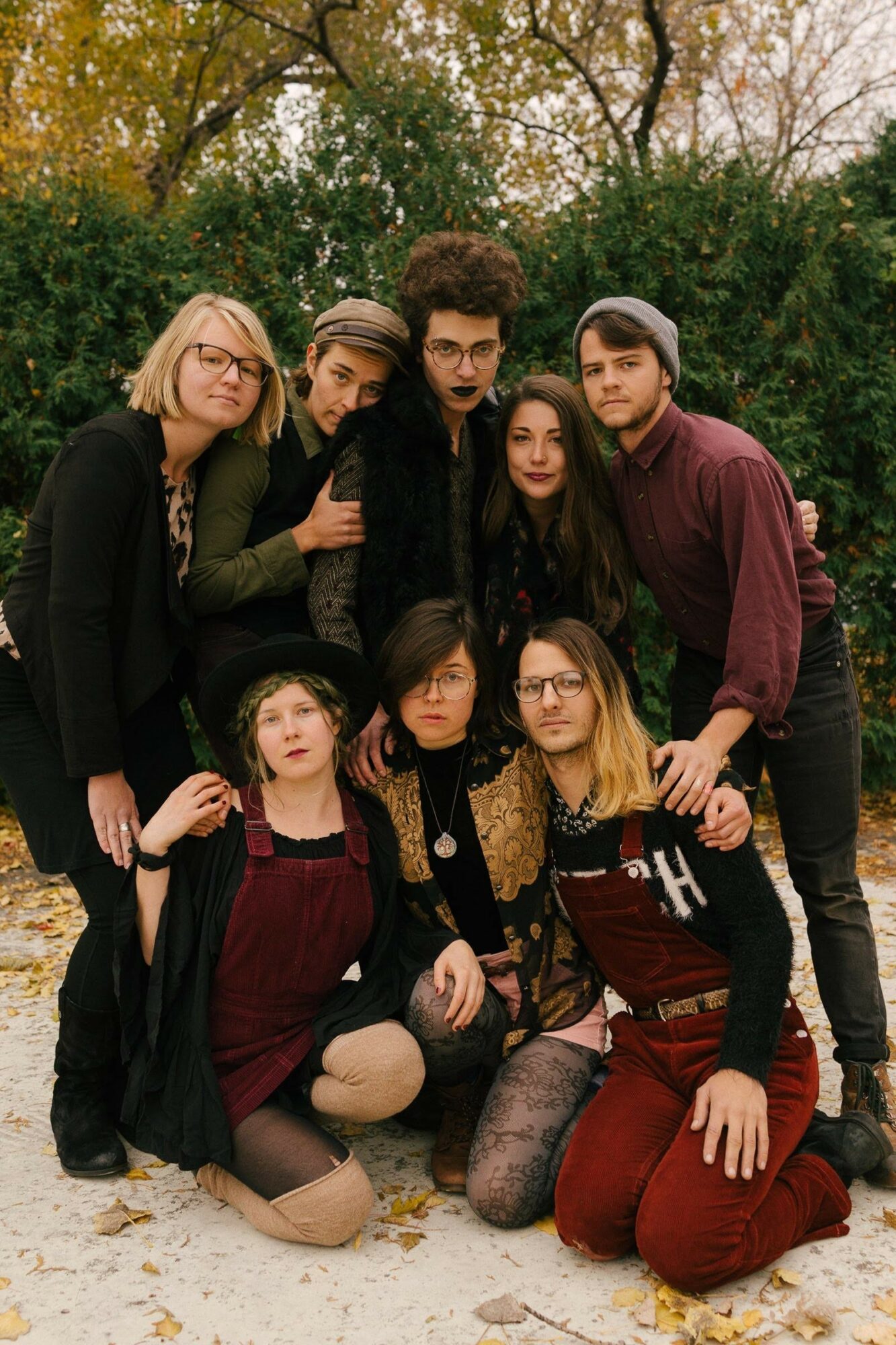
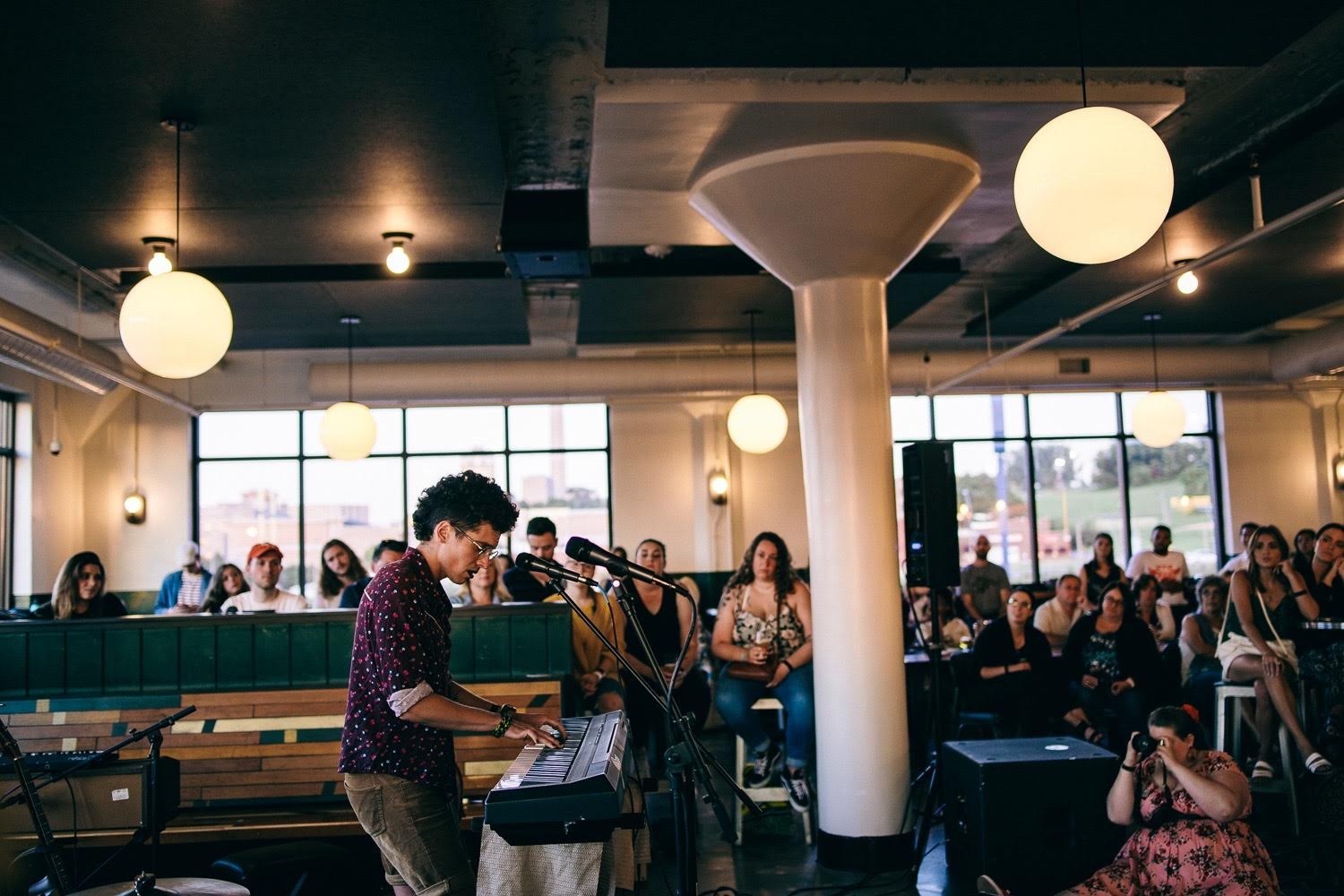
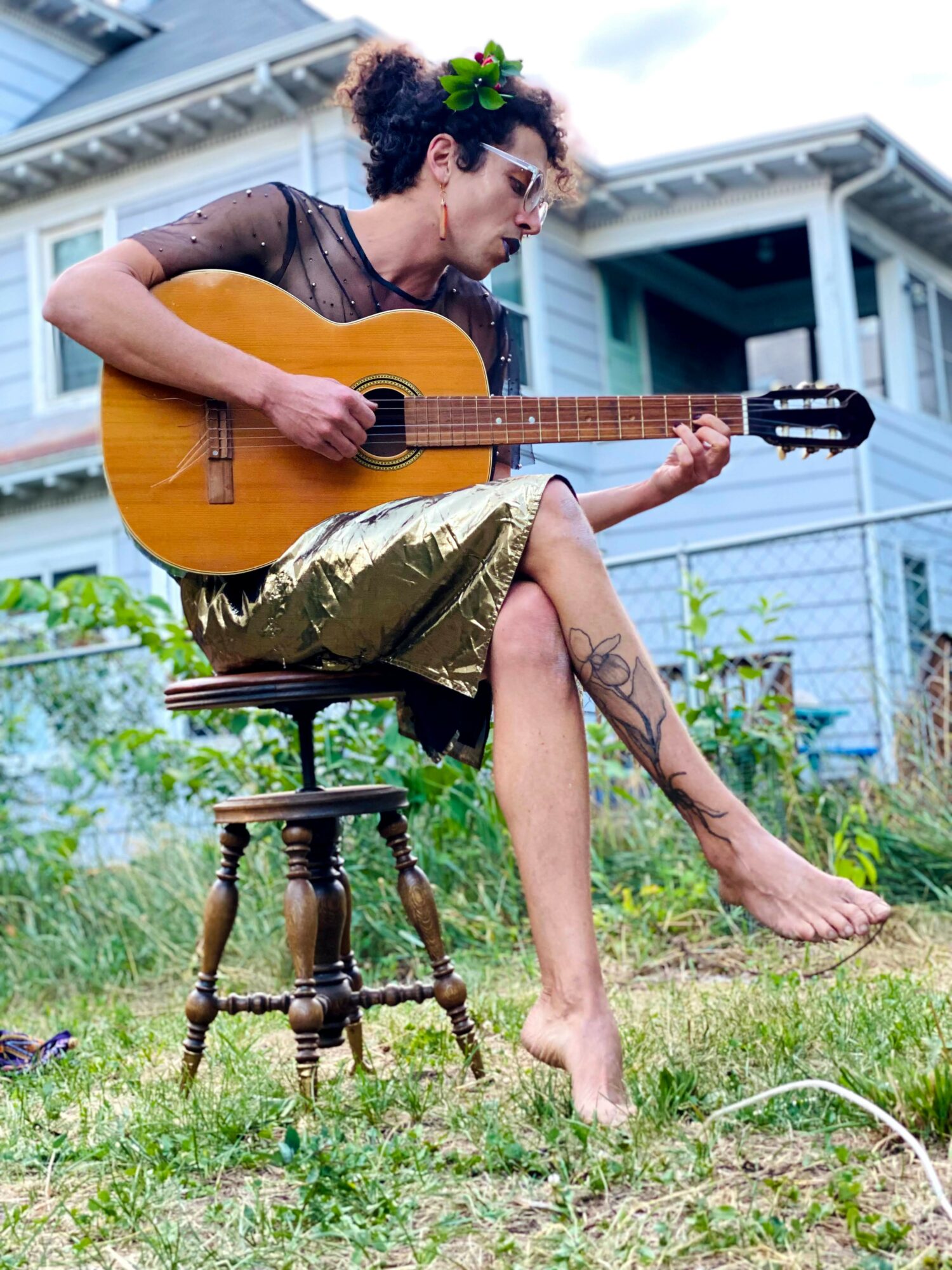
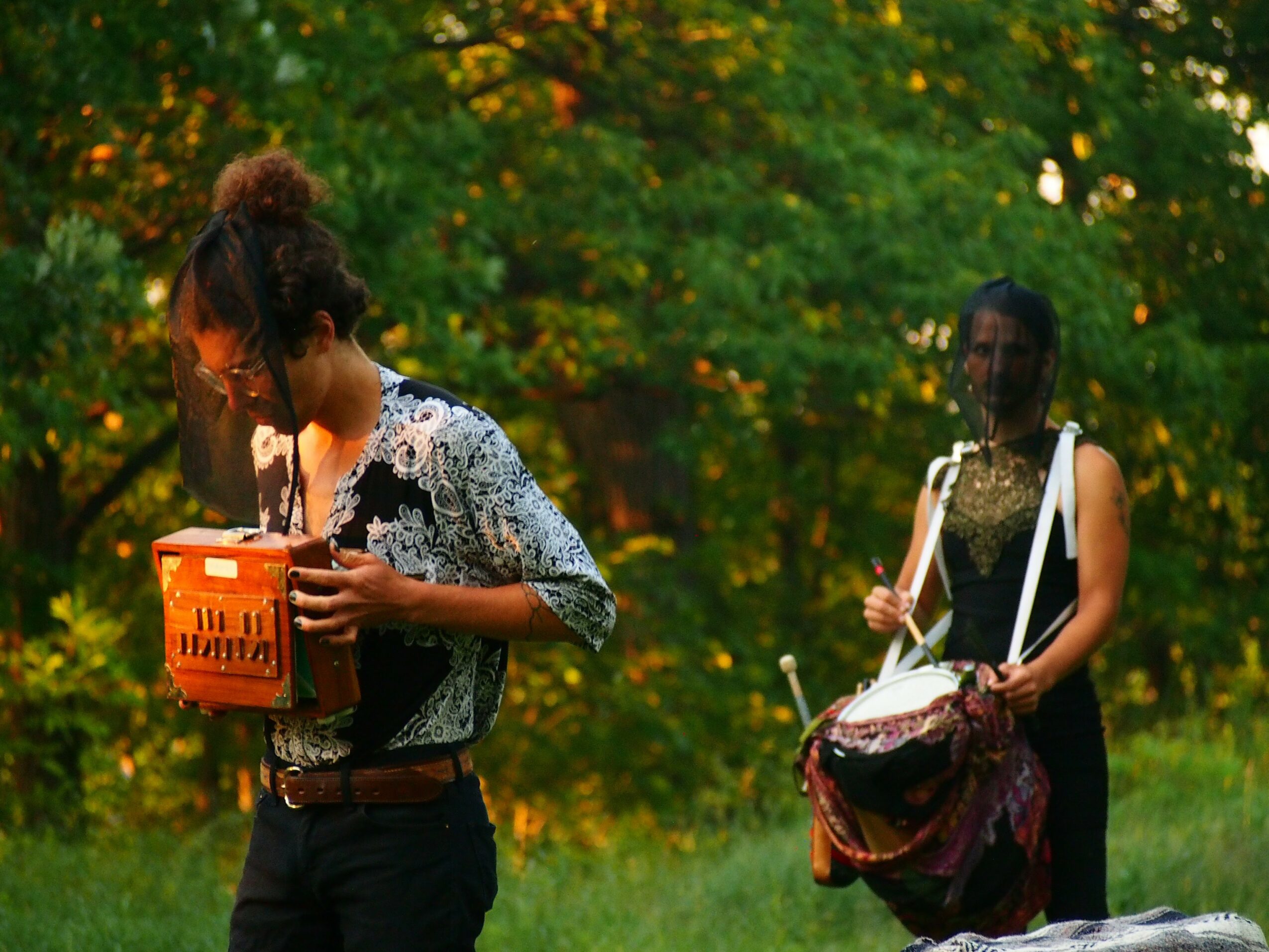
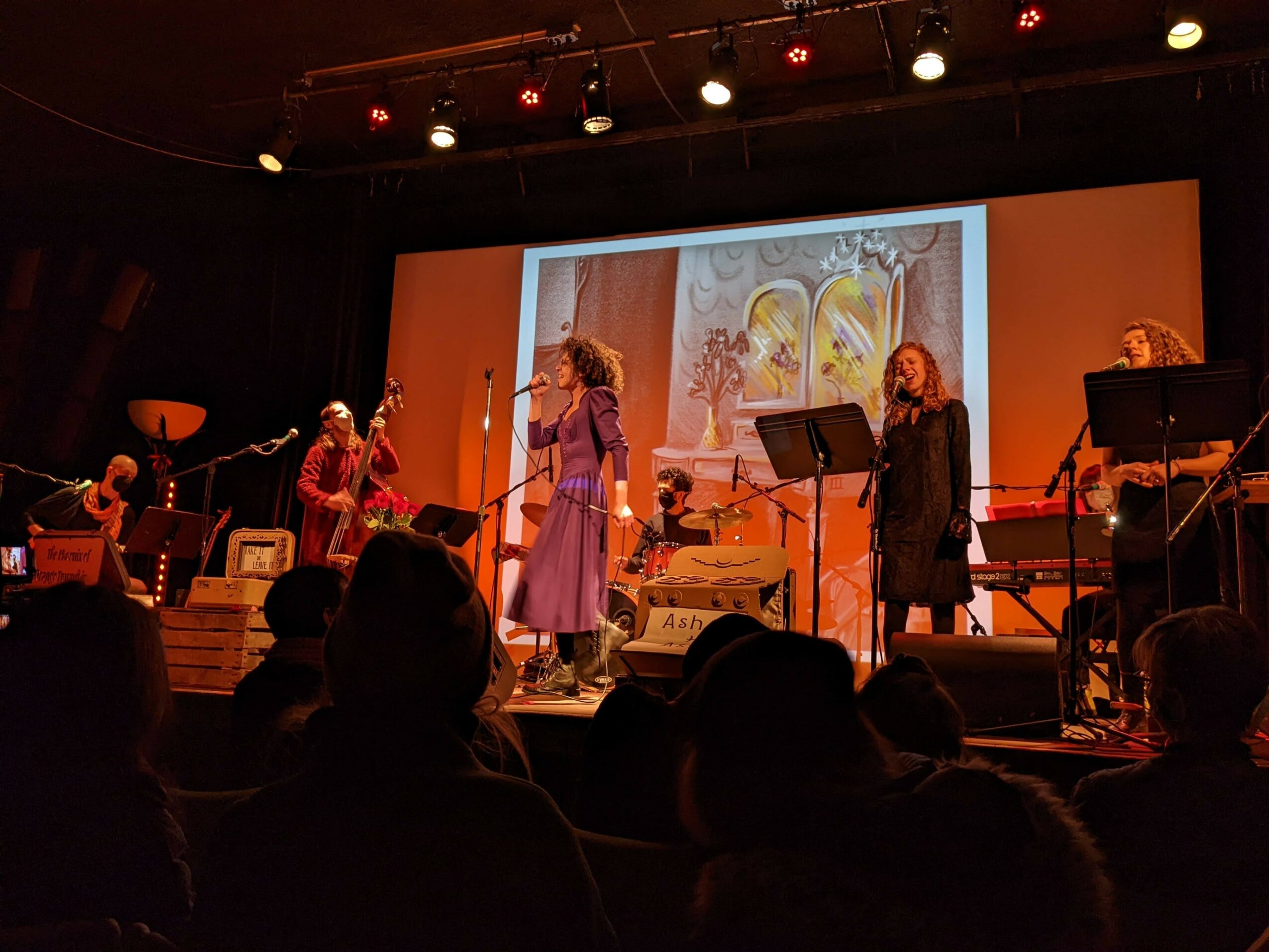
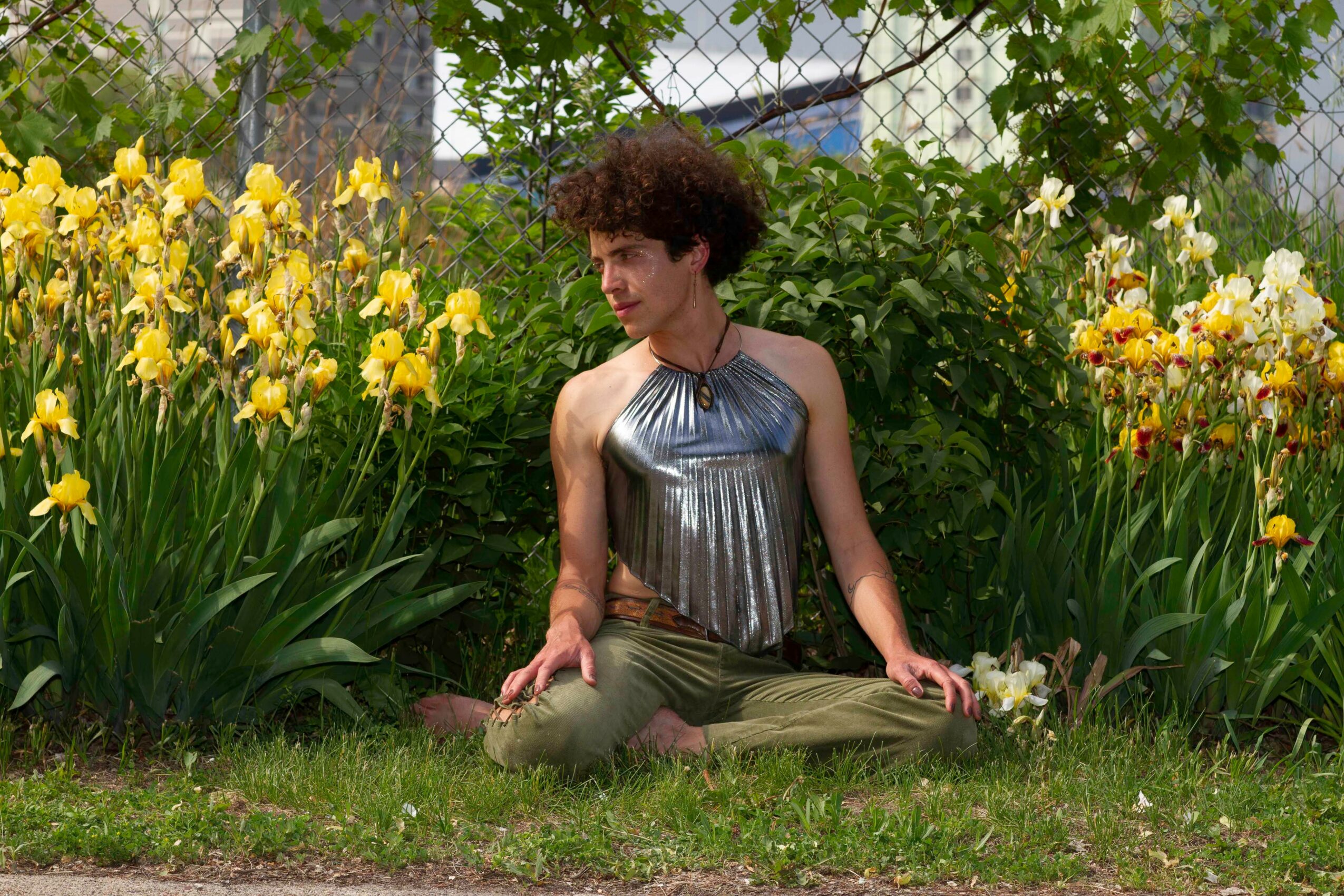
Image Credits
1 – Colby Abazs
2 – Madison Gies
3 – Martha Mathis
4 – Madison Gies
5 – Andrea Kloehn
6 – Ben McBee
7 – Alex Griffin
8 – Jon Hardy
9 – Maxwell Collyard

